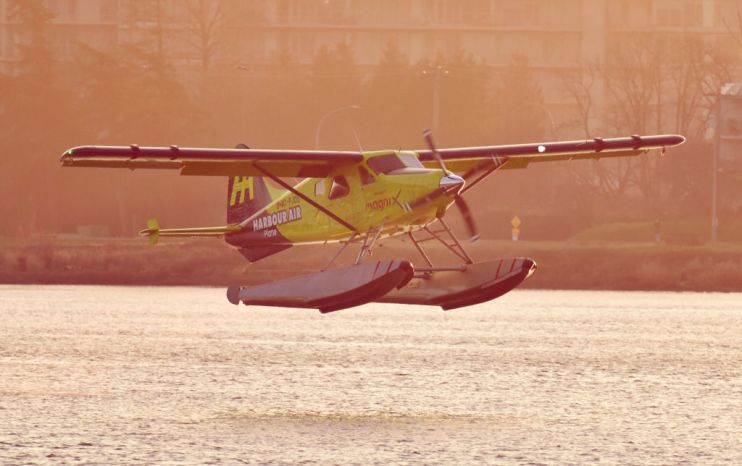‘World’s first’ fully-electric commercial flight takes off in Canada

A fully-electric passenger seaplane has taken off in Vancouver, Canada, in what has been described as a “world first” in aviation.
The test flight by Harbour Air and Magni X was by a six-passenger plane, fitted with an electric motor – the first all-electric commercial aircraft.
Read more: Electric-powered regional flights ‘could be taking off by 2030’
It has been called the first step towards building the “world’s first all-electric commercial fleet,” as the aviation industry looks to cut carbon emissions.
“This historic flight signifies the start of the third era in aviation – the electric age,” Harbour Air and Magni X said in a statement.
Australian company Magni X said its propulsion system aims to give a “clean and efficient way to power airplanes”.
It comes as manufacturers and airlines get increasingly worried about the carbon emissions given off by the sector – and what it could mean for their business long term.
But switching to electric engines is viewed as one of the best ways to cut greenhouse gases from the industry.
In Britain, aviation is on course to be the biggest source of emissions in the next 20 years.
And increasingly, people are trying to fly less – as initiatives such as Extinction Rebellion and the Swedish concept of “flygskam” (or “flight shame”) gain popularity.
Electric aircraft are unlikely to be able to travel long distances such as transatlantic flights any time soon – but regional flights could be powered by electric planes in the coming decades.
Read more: British Airways boss says electric planes idea won’t fly until 2050
An aircraft like the one flown in Vancouver could only fly about 160km (100 miles) on lithium battery power, according to AFP.
“The [flight] range now is not where we’d love it to be, but it’s enough to start the revolution,” said magniX chief executive Roei Ganzarski, the news agency reported.